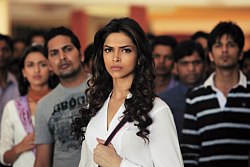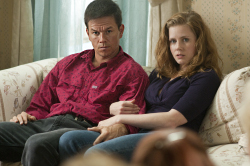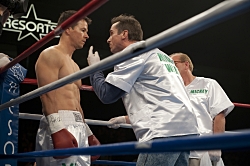Tell us about your relationship to the original ‘Star Trek’.
Popular on LondonNet
I was not a big fan as a kid. And that probably was due to my age. I was six when I immigrated to the States in 1978. And it was the height of ‘Star Wars’ mania. I know I probably shouldn’t compare the two but by then, ‘Star Trek’ was sort of dated. It had funny velour costumes. ‘Star Trek’ was much more literary than ‘Star Wars’ and so it took me a while to get into it. But by the time I got into high school, I was watching ‘The Next Generation’.
So what was it about ‘star trek’ that really intrigued you as an actor?
Well, for me it was mainly the opportunity to be connected to something that I felt was so positive, as I said, from my youth. And to reprise a role that meant personally a lot to me and I think meant a lot to Asian Americans. There are a couple of things that are a downer, being an Asian-American actor. One of them is not being able to, say, play the son of an actor, that’s a big actor that I really admire and as a result, being shut out of a lot of families in scripts. Once they cast a particular role as white, you can’t play their brother or their son. Secondly, there are certain mythologies that you can’t do. One is the Western. And for me, ‘Star Trek’ was my Western. It is, in its themes, it’s such a classic Western, exploring new worlds and stuff. For me, it was a chance to play cowboys and Indians in space. That was another draw for me.
The thing about ‘star trek’, especially at the time, it was a cross section, a microcosm of the world. There were african american characters, asians, russians – it was something we didn’t really see on tv.
That’s right. And I did clock that as a child. And it was very meaningful to me. I made twin observations. One was, wow, they don’t think much of people that look like me here, as I surfed channels. And then it was clocking George Takei. He was the helmsman of a spaceship, just being cool and not doing any of the things that other people were doing. He was not throwing karate chops or having an accent or buckteeth. So it was very meaningful for me to see George on television. And that’s a great deal of why I was so interested in being in this remaining. I was keen on engaging in that legacy.
How did you guys work together? How did you guys, since you’d never all worked together, what did jj try and do to get that seemless?
I think JJ just let us be funny. He encouraged that, which I think is useful. I find that sometimes on dramas, there’s more goofing around between takes then there is on comedies. And I’ve found that to be true in my case sometimes. There’s a science to hitting all those beats in comedy. Rather like math. You know, you you’re like [snaps his fingers], do this, this, and it will set up this. And in between takes, I find myself always in a discussion with the director. “How do we improve that scene?” “Can we milk one more joke out of it?” It becomes, like, this obsession with perfection between the scenes – for me, that’s how I find myself on a comedy set. And, you know, on this set we were just… We were dealing with, you know, the end of the world in the scene and so we needed to find a release valve.
How much of the enterprise was practical, was actually there on set?
More than you’d think. I haven’t seen the finished product, so I don’t know what they’ve added. Obviously there has to be a green screen that we’re looking at. But a lot of those controls, although they didn’t make anything go or thrust or work, they turned. So it was easy to make believe. There were so many knobs and stuff. And then there were hallways that led out directly out of the bridge. So it was easy. They made it very easy for us.






